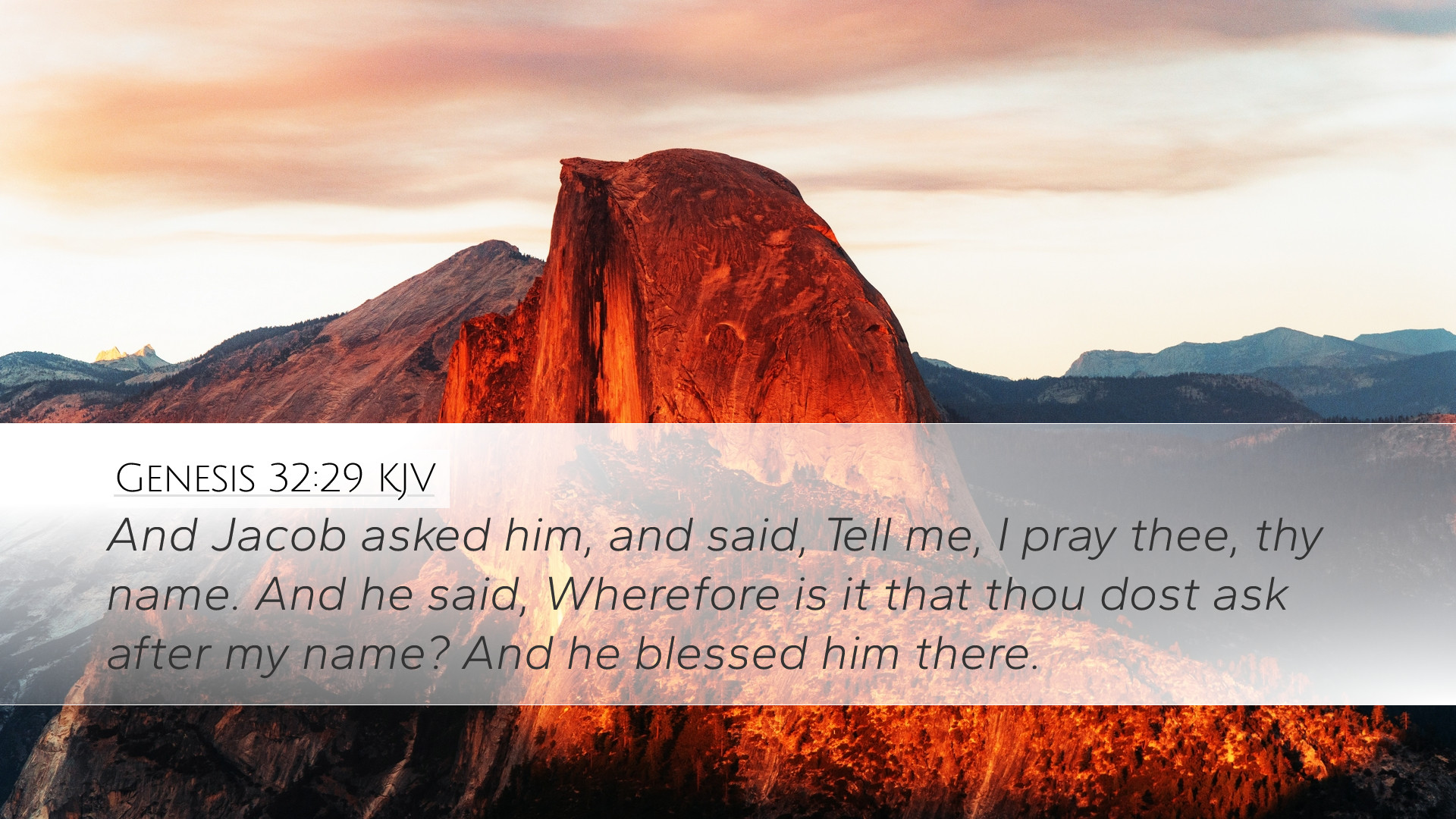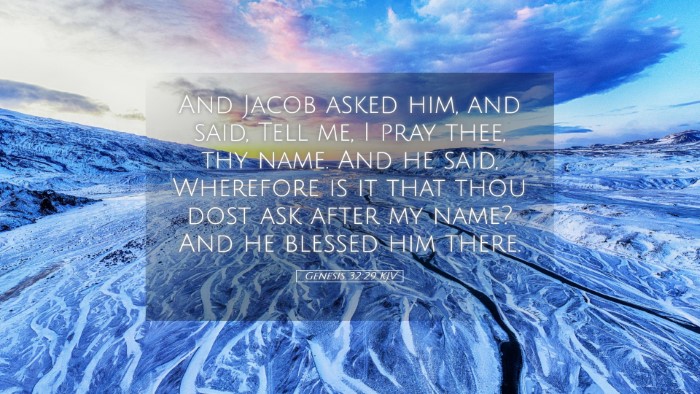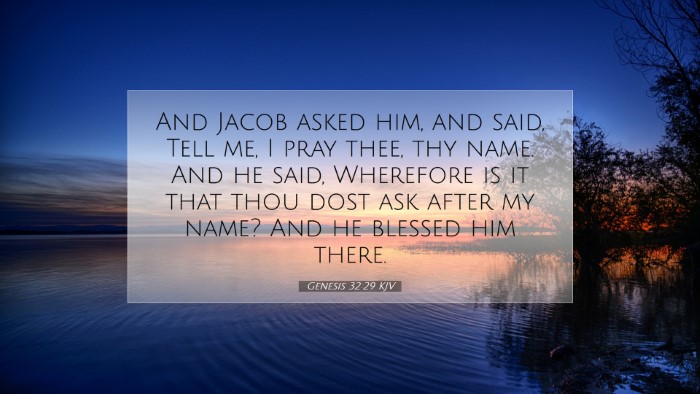Commentary on Genesis 32:29
Genesis 32:29 presents a pivotal moment in Jacob's life, encapsulating not only a personal transformation but also a significant theological revelation. The verse reads:
"And Jacob asked him, saying, Tell me, I pray thee, thy name. And he said, Wherefore is it that thou dost ask after my name? And he blessed him there."
Context and Background
This encounter occurs during a crucial episode in Jacob's life as he prepares to meet Esau after many years of estrangement. Notably, Jacob wrestles with a mysterious figure until daybreak. This figure is often identified as an angel or a divine being, highlighting the spiritual nature of this encounter.
Matthew Henry observes that this wrestling symbolizes Jacob's internal struggle and the conflict between his past and the redemption he seeks. Jacob desires not just victory but a blessing that validates his identity before God and man.
Exegesis of Key Phrases
The pivotal inquiry by Jacob, "Tell me, I pray thee, thy name," is rich in implications. Albert Barnes notes that Jacob’s curiosity about the name denotes a desire for deeper revelation and understanding of the divine nature of his opponent. This reflects a yearning for intimacy and a recognition of the transformative encounter he is experiencing.
The response from the divine figure, "Wherefore is it that thou dost ask after my name?" suggests that the name may hold profound significance, akin to the sacred nature of the divine identity itself. Adam Clarke elaborates that a name in the biblical context often encapsulates the character and essence of the entity it represents. Thus, asking for the name can symbolize a search for deeper spiritual truth.
Theological Implications
This passage is essential for understanding the nature of divine encounters. It teaches that spiritual transformation often comes through struggle and wrestling with God. This resonates with the Christian experience where spiritual growth frequently arises out of trials and conflicts. As Jacob wrestles, he is not only confronting the angel but also grappling with his own fears, guilt, and history.
Matthew Henry emphasizes that this wrestling resulted in Jacob receiving a new identity—the blessing that changed his life trajectory. Jacob, who had once been a deceiver (as his name implies), now embodies a new reality as Israel, meaning "one who struggles with God."
The Blessing and Identity Transformation
The blessing received by Jacob is a moment of divine affirmation. It signifies God's commitment to Jacob despite his past. Albert Barnes points out that the moment Jacob receives the blessing, he is not just favored; he is also marked for his new path as the progenitor of God's chosen people.
Adam Clarke further notes that this blessing encapsulates not only a promise but also a new relationship with God. The transformation from Jacob to Israel illustrates how encounters with God can redefine a person's essence and future direction. It teaches pastors and theologians about the significance of personal encounters with the Holy that lead to spiritual renewal.
Applications for Contemporary Readers
This account serves as a metaphor for the spiritual journeys taken by believers today. Just as Jacob wrestled with God, Christians are called to engage with their faith, confronting doubts, fears, and past sins. The asking of names and seeking divine truth enriches one's relationship with God, allowing individuals to discover new aspects of God's character and their identity in Him.
- Struggle as Part of Faith: Engaging deeply with challenges is a necessary aspect of growing in faith.
- Seeking Identity in Christ: Believers are encouraged to seek their identity in Christ, just as Jacob sought clarity about his own identity through the divine encounter.
- The Role of Blessings: Understanding blessings in life not just as material gains but as spiritual affirmations that guide and shape one's life.
Conclusion
Genesis 32:29 encapsulates profound themes relevant for all stages of faith journeys. It teaches about the transformative power of divine encounters, the necessity of grappling with one’s past for redemption, and the blessings that come from sincere seeking of God’s truth.
This commentary, drawing insights from revered public domain theologians, aims to equip pastors, students, and scholars with a deeper understanding of this pivotal moment in Jacob's life and its larger implications within the biblical narrative.


